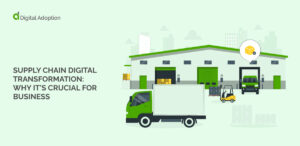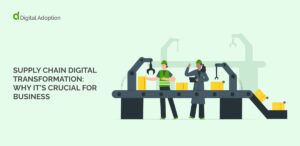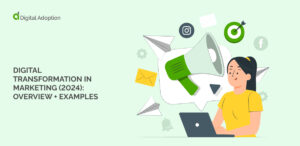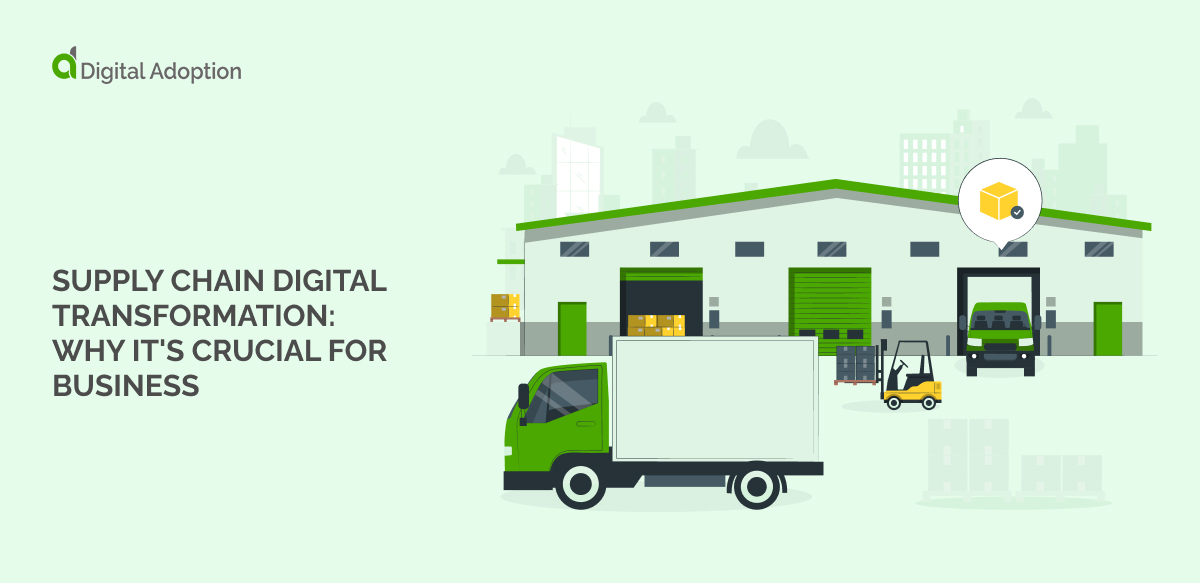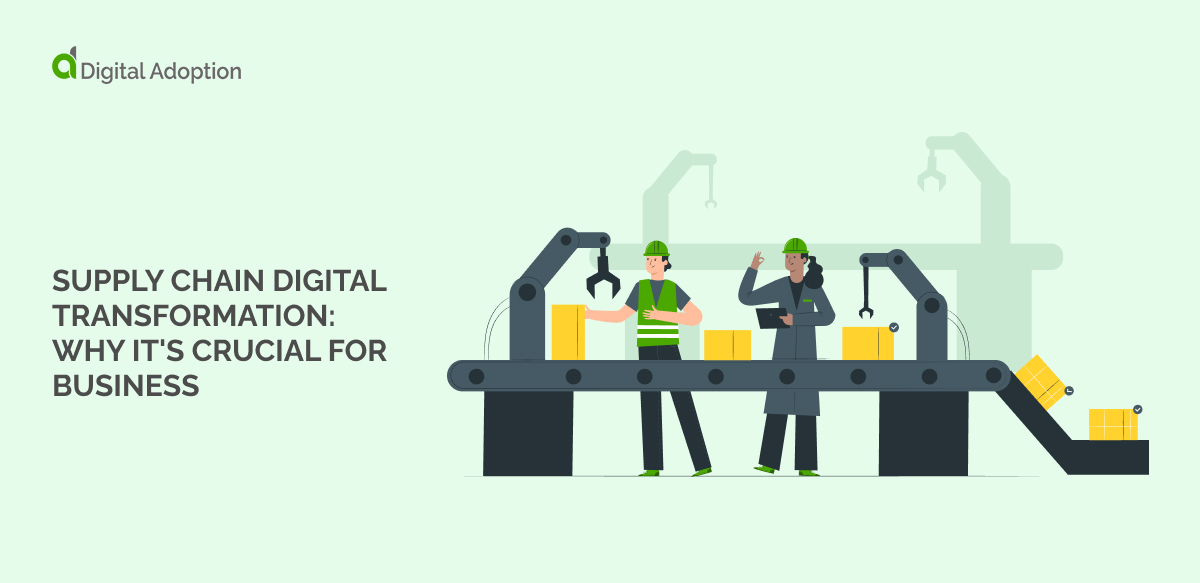What is the difference between technical, strategic, and tactical digital adoption?
Recently, digital adoption roles such as these have become more relevant than ever. For instance, many enterprises are building dedicated digital adoption units to streamline employees’ digital onboarding, training, and support.
Also, according to Gartner, the market penetration of digital adoption solutions scaled by 300% in one year.
Given these trends, it is unsurprising that both employers and employees are realizing the value digital adoption.
Since digital adoption is a relatively recent industry, however, ambiguity remains about how to study digital adoption and which career pathways are available.
Below, we’ll look at these issues, starting with an overview of digital adoption and the differences between three main roles in digital adoption.
Digital Adoption: A Quick Overview
Before diving into the different types of digital adoption, we need to establish a clear definition of the term.
Digital adoption refers to a state where users can use digital tools for their intended purpose and to their fullest extent.
For the modern organization, this focus on software utilization is critical – after all, employees who are not skilled with their tools cannot be productive.
Digital adoption programs, strategies, and solutions are therefore designed to accomplish several goals:
- Enhance user proficiency, productivity, and performance
- Maximize product value and software ROI
- Improve the software experience and reduce software-related frustration
- Streamline digital onboarding and training
As most readers are probably aware, the digital economy is fast-paced and constantly changing.
In this evolving business environment, companies must continually adopt new tools in order to stay relevant and competitive. But the more tools they adopt, the more critical it is to have an effective adoption process, since adoption programs directly affect employee performance and, as a consequence, organizational performance.
Digital adoption tackles this problem through digital adoption platforms, which are platforms that streamline onboarding, training, and support.
A digital adoption platform:
- Provides contextualized guidance to users, without the need for human intervention
- Takes users step-by-step through a series of tasks, allowing them to learn software independently
- Automates repetitive tasks, either completely or partially, to improve user productivity and the user experience
- Analyzes users’ interactions with software, which provides digital adoption managers with insight into training needs
Digital adoption specialists use these platforms to create, manage, and optimize training content.
However, as we’ll see next, there are several different roles that one can take as an adoption specialist.
Technical vs. Strategic vs. Tactical Digital Adoption
Digital adoption, like most other business functions, can be categorized into technical, tactical, and leadership roles.
Here is a brief overview of each role’s responsibilities:
- Technical digital adoption specialists build digital adoption solutions, implement digital adoption platforms, manage projects, collaborate with clients, and perform other technically-oriented tasks
- Tactical digital adoption professionals design, manage, and optimize projects, lead digital adoption teams, work closely with clients, and perform other managerial tasks
- Strategic digital adoption leaders are often business executives who envision, design, and oversee large-scale digital adoption projects in an organization and align those with the organization’s digital strategies
All of these roles are necessary to conduct successful digital adoption projects, but each one clearly differs in terms of its duties.
When choosing an area of digital adoption to study, it naturally pays to pursue a role that suits one’s temperament, career path, and desired level of responsibility.
For instance, project managers who want to pursue a career in digital adoption would do well to study tactical digital adoption.
Engineers interested in developing digital adoption solutions, on the other hand, would be better of studying technical digital adoption.
Where to Study Digital Adoption
Naturally, the best place to learn about digital adoption is from industry leaders, such as WalkMe, the company that pioneered the digital adoption platform.
WalkMe offers several resources for those interested in studying digital adoption:
- WalkMe’s main blog offers insightful content on digital adoption, digital transformation, the digital workplace, and related topics
- WalkMe’s change management blog, as the name suggests, covers change management and connected topics, such as the employee experience and management skills
- The Digital Adoption Institute is WalkMe’s formal training program that offers certifications and courses on technical, tactical, and strategic digital adoption
Those who want to learn the basics about digital adoption can visit WalkMe’s main blog or, of course, our own digital adoption blog.
Professionals who are serious about pursuing a career in digital adoption, however, are recommended to investigate the Digital Adoption Institute, since it offers structured training specifically designed for today’s forward-thinking professional.
For instance, the Institute’s course offerings cover all of the key concentrations needed in digital adoption, including:
- Executive leadership
- Operations
- IT
- HR
- Learning and development
- Internal comms
In short, WalkMe’s training program can provide students with all the skills they need to succeed in this burgeoning career path.




